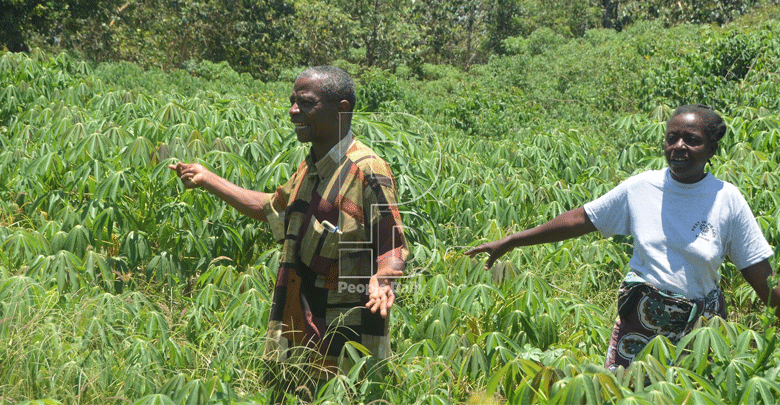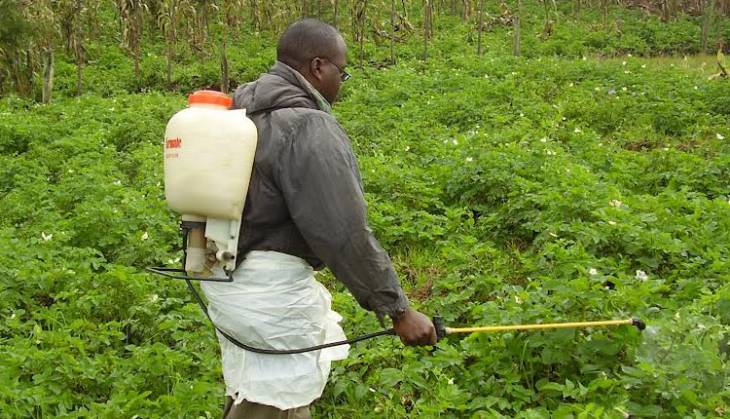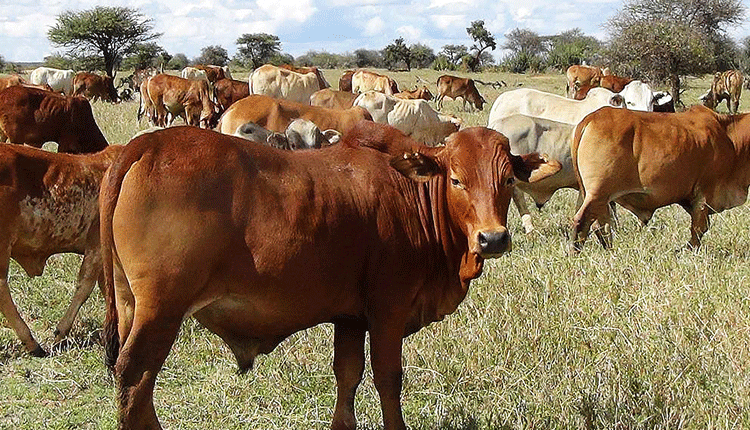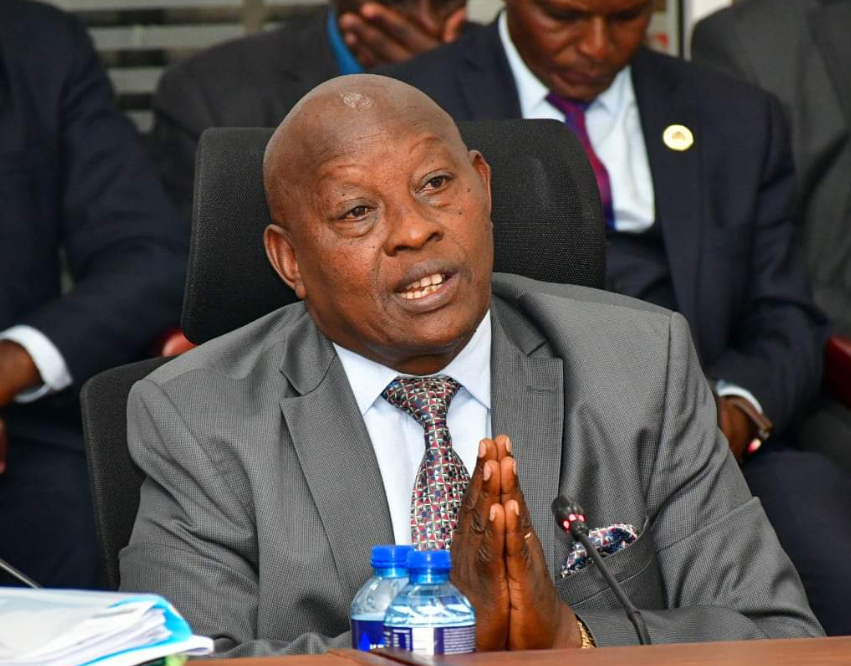Accountant quits job to mint cash from cassava

Reuben Mwambingu @reubenmwambingu
Remus Mngumi strolls through the lush cassava plantation at his home in Baguo village in Malindi.
The farm is about an hour’s drive from Gede Township off the Kakuyuni-Mijomboni road.
Mngumi is an accomplished cassava farmer. This has become his new face of life after years of working as a chief accountant at an institution in Malindi town.
“I worked for years as an accountant at Upweoni Community in Malindi. I quit in 2010 to venture into farming.
I have never regretted my decision because cassava has a good return after every harvest,” Mngumi says.
He has tilled seven acres of land under the crop. He uproots a giant cassava tuber from underneath one of the cassava trees, spilling over the visibly productive soil in almost every direction.
“You see, this is first grade product from my farm. Wen you see this, then you know that good returns are certain,” he says.
He plants the local ‘Tajirika’ variety that takes only eight months to mature. Local consumers are his key market.
“When I ventured into cassava farming, my focus was on the traditional variety, which then was not doing well until I decided to visit the Kenya Agricultural and Livestock Research Organisation (KALRO), and bought ‘Tajirika’” he says.
This variety matures fast and has strong cassava tubers that fetch a good market price.
He was scheduled to go for a two-and-a-half- month training on Sustainable Farming at Harper Adams University, Shropshire, UK between May and July this year, but the plans were halted by the outbreak of Covid-19. It was pushed to next year.
While noting that cassava is the third most important food and cash crop in Kenya, Kalro Director General Eliud Kireger said the crops’ potential has not been fully utilised, yet it supports the livelihoods of over 2.5 million people.
Currently, he says cassava production levels in the country are estimated at 83,486 hectares with an annual production of 1.5 million metric tons, translating to Sh22.2 billion annually.
He, however, notes statistics indicate that cassava production has been on the decline by 44 per cent between 2012 and 2018.
This has been attributed to factors such as lack of high yielding varieties, damages due to diseases, poor agronomic practices, post-harvest losses and poor storage methods, lack of value addition and product development and lack of reliable market.
Kireger admits there has been a challenge in marketing, whereby cassava producers have been producing on a one-off basis and buyers often exploit them by taking advantage of the knowledge of poor storage facilities.
“With poor storage facilities buyers understand that producers will be desperate to sell their supply, and therefore are normally exploited,” Kireger said.
It is against this backdrop, Kireger says, that Kalro has embarked on training of extension staff and service providers from counties implementing Kenya Climate Smart Agricultural Productivity (KCSAP) project activities, adding three counties- Kisumu, Busia and Lamu- selected cassava value chain as a priority through which to reduce poverty through increased incomes.
Training is expected to have ripple benefits on cassava productivity.
Kalro institute Director Industrial Crop Research Centre Mtwapa, Dr Teresia Luvuna, says they are taking farmers through field school with a view to expand the latest farming technology.
“We are training farmers on various breeds of cassava, where to plant and the importance of the crop in achieving food security and economy…
We are focusing mostly on breeds that perform well here at the Coast. There is a breed such as Tajirika, which does very well.
It produces more than 60 tons per hectare in a period of between eight months and one year,” Dr Luvuna says.












